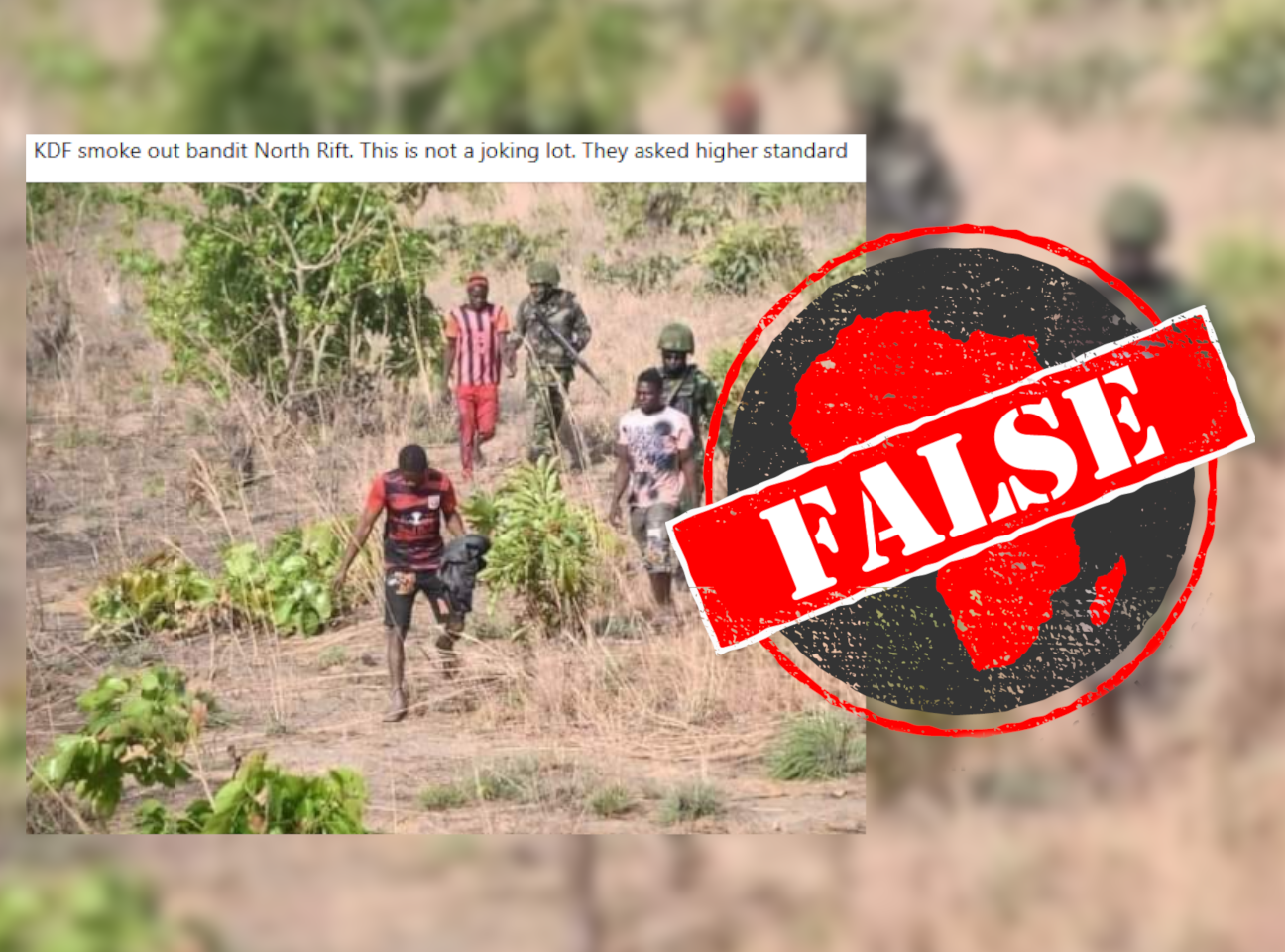IN SHORT: Kenya is grappling with banditry in its Rift Valley region, prompting the army to be called in. But a photo circulating on social media with the claim it shows Kenyan soldiers already making a difference was taken in Nigeria.
Kenya’s security forces are struggling to contain rampant banditry in six counties of its northern Rift Valley region.
On 13 February 2023, defence minister Aden Duale issued a gazette notice that the army would be sent to fight the bandits.
But the Law Society of Kenya urged the government to rescind the notice and get the national assembly’s approval first. The society has called the deployment unconstitutional and has threatened to go to court.
It is against this backdrop that a photo is circulating on Facebook with the claim that the Kenyan army recently caught bandits off guard.
The photo shows two armed soldiers leading three men in civilian clothes through a grassy field. Most captions claim that the soldiers are from the KDF, the Kenya Defence Forces.
The photo and its claim has also appeared here, here, here and here. But does it show bandits caught by the KDF? We checked.

Photo of kidnapped travellers rescued in Kaduna, Nigeria
A Google reverse image search of the photo led us to an article on the website of Punch, a Nigerian newspaper. It’s headlined “Troops rescue 30 kidnapped travellers in Kaduna” and dated 2 February 2023.
Kaduna is a city in the north-central Nigerian state of the same name.
The photo was snapped in Nigeria. It doesn’t show bandits arrested in Kenya.
Republish our content for free
For publishers: what to do if your post is rated false
A fact-checker has rated your Facebook or Instagram post as “false”, “altered”, “partly false” or “missing context”. This could have serious consequences. What do you do?
Click on our guide for the steps you should follow.
Publishers guideAfrica Check teams up with Facebook
Africa Check is a partner in Meta's third-party fact-checking programme to help stop the spread of false information on social media.
The content we rate as “false” will be downgraded on Facebook and Instagram. This means fewer people will see it.
You can also help identify false information on Facebook. This guide explains how.


Add new comment